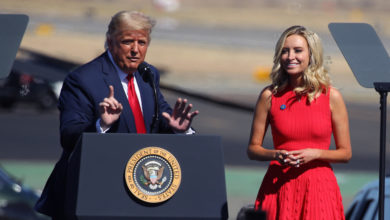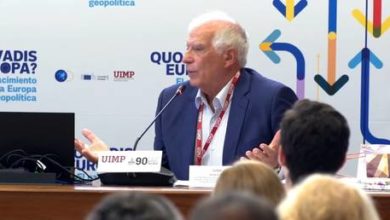Why China’s President Xi Jinping Holds So Much Global Power

MMany people believe that the US president is the most powerful man in the world. However, times have changed. Two parallel events have occurred in recent years: The President of the United States lost power, while China’s president gained it.
It is ironic that capitalists have helped to make the Communist Party of China strong. From Apple to Microsoft, Siemens to Volkswagen, companies eager to profit from lower wages and China’s 1.4 billion customers have all shifted key elements of production from the heartlands of America and Europe to China. China was the world’s largest economy in terms of gross domestic product, adjusted for purchasing power. It surpassed all other economies. This is a significant tectonic shift that most people in West Asia have not yet grasped, as Americans are number one since 1872.
Xi Jinping did not initiate this transformation, but since becoming China’s president in 2013 he has made the country his own. Xi’s transformation of China began with a campaign against corruption, punishing 1.5 million officials after coming to power, including seven from the top leadership ranks (i.e., the Politburo and ministers) as well as two dozen senior generals. Two of the most prominent officials were sentenced. The purges and show trials served to eliminate any actual or potential opponents and to concentrate power in Xi’s own hands. The Chinese people also saw him as a strongman.
Today, Xi is closer to his dream of being the next Mao. In November 2021, the Communist Party’s Central Committee passed a resolution “resolutely upholding Comrade Xi Jinping’s core position on the Party Central Committee and in the Party as a whole.” It was only the third time that the Party’s Central Committee had passed a resolution about the Party’s own history. The document mentions Xi’s predecessors Jiang Zemin and Hu Jintao once; the great reformer Deng Xiaoping, who was responsible for the economic transformation of China and made it a rich country, six times; and Mao Zedong eighteen times. And Xi Jinping. Twenty-four times. The resolution does not put Xi on a par with Chairman Mao—he’s elevated above him.
Mao ruled over a developing nation, but Xi Jinping is now an economic superpower. Xi uses a different ideological weapon, nationalism. Mao was primarily a communist leader. As the executioner of an historic mission, Xi stands alongside Confucius as well as the Chinese emperors to overthrow the humiliation suffered by the Chinese people under the colonial powers. He also wants to bring down centuries of Western dominance of the world. To complete his mission, Xi removed the term limit on his predecessors, allowing him and his successors to continue to lead until his final breath.
Nationalist rhetoric justifies Xi efforts to expand China’s current territory. He already brought Hong Kong under control, jailing the democrats without any international reaction. Now he hopes to restore Taiwan to its empire. He claims the South China Sea and resource-rich regions of Vietnam, Malaysia, and the Philippines by asserting his sovereignty.
It was like Xi Jinping received a gift when Donald Trump became the president of America in 2017. In Europe, many mistakenly took Trump’s “America First” foreign policy strategy as an attempt to defend and expand the U.S.’s influence in the world. Trump actually believed that the U.S. should cut back on its international engagements and instead focus more attention to domestic problems. This doctrine sought to isolate America. Joe Biden has a slightly different foreign policy approach, but he is still in charge of a divided nation. Many even speak of the danger of civil war. The Chinese public, however, embrace Xi Jinping more than Biden and Trump.
Russia’s invasion of Ukraine makes clear how the international balance of power has shifted. Biden has the option to threaten Putin, or beg him for help. He cannot stop Putin. Xi Jinping could stop Putin if he wanted to—but he doesn’t want to, because everything is going his way. After Xi hosted Putin at the Winter Olympics Beijing, the two released a joint statement reaffirming the shared worldview. At the time, Putin rightly understood that Western sanctions would not hurt him in the long run, since China would be happy to buy Russia’s gas and oil.
With his plans for a “New Silk Road” (officially called the “Belt and Road Initiative”), Xi Jinping is buying himself a great deal of influence around the world. The new Silk Road covers the same area that the old one did—that is, Asia, Africa and Europe—and more, extending to Latin America. It will touch every part of the world, and infrastructure will be built, expanded trade, and investment made in transport. Xi Jinping plans to invest more than $1 trillion in it over a ten-year period. Although the principle behind Marshall Plan is similar, it’s on a far larger scale. The U.S. Congress approved only $12.4 billion for the Marshall Plan—$139 billion in today’s dollars, or little more than a tenth of what China plans to invest.
What’s even more astonishing is that, although Xi Jinping has so much power, people in the West know almost nothing about him: how he was born into the family of one of the highest leaders of the People’s Republic—and then experienced a terrible crash. How he was tortured and exiled during Mao’s Cultural Revolution—and still became a staunch Mao supporter. That his wife Peng Liyuan is a highly talented singer, as famous in China as Jennifer Lopez or Beyoncé is in the U.S. Amazingly, his father was a friend to the Dalai Lama as well as the Uyghurs. Xi Jinping has oppressed non-Chinese groups. He is one of 1.4 million people. If not 7.7 billion.
Here are more must-read stories from TIME





